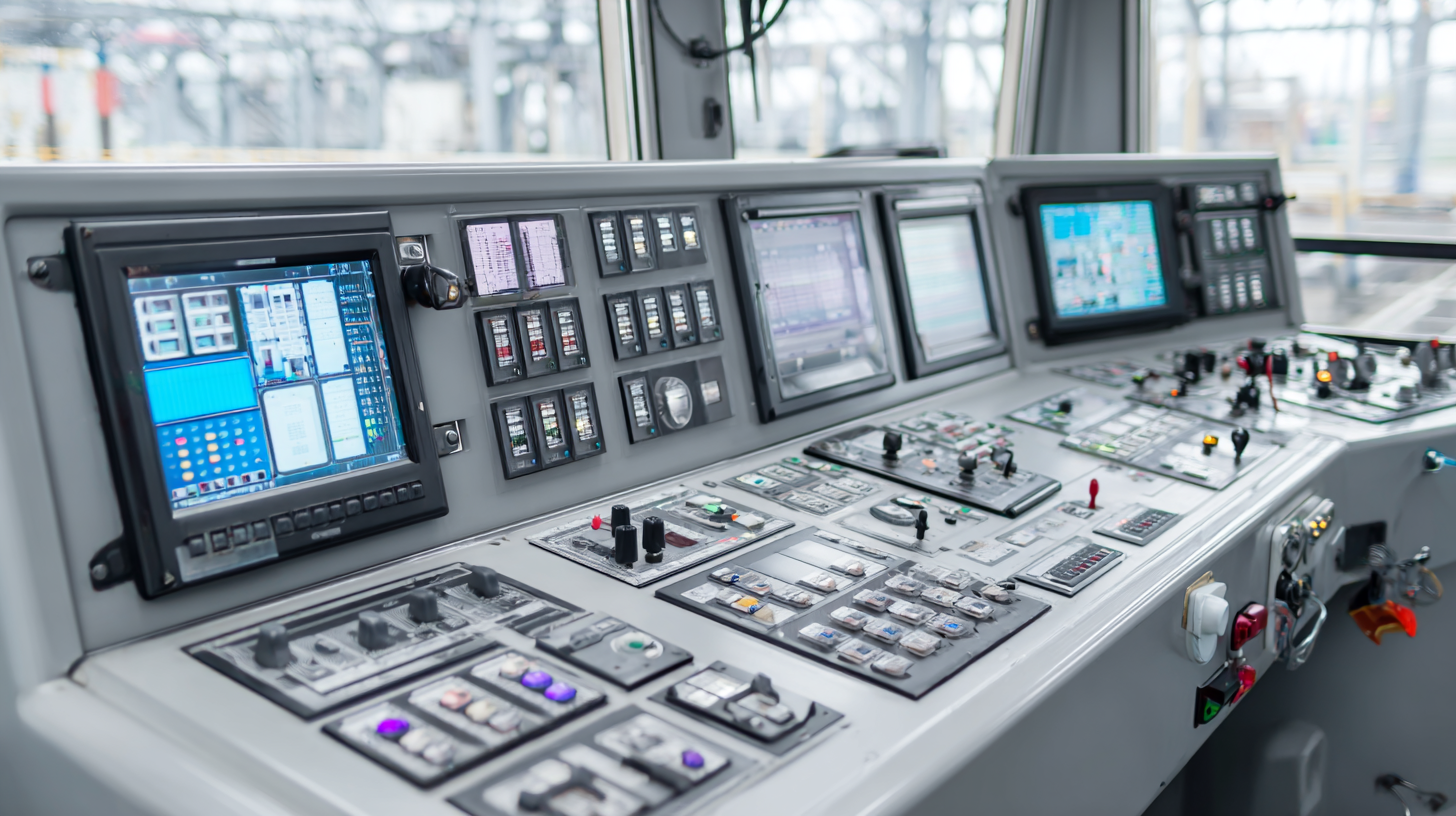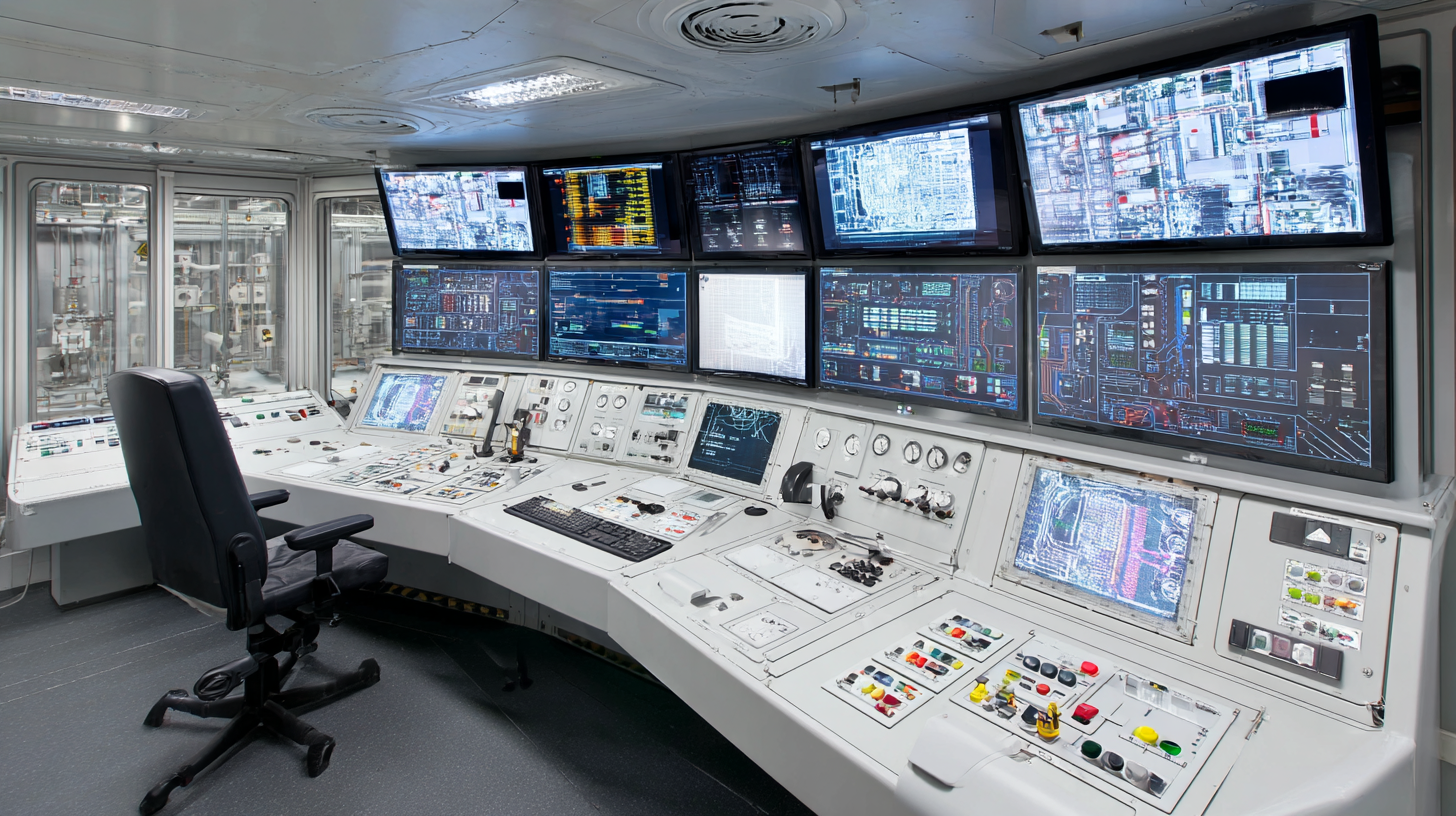In today's increasingly automated industrial landscape, the selection of an optimal DCS Control System is crucial for enhancing operational efficiency and maintaining competitiveness. According to a recent report by MarketsandMarkets, the global Distributed Control Systems (DCS) market is projected to grow from USD 16.5 billion in 2021 to USD 21.8 billion by 2026, reflecting a compound annual growth rate (CAGR) of 5.5%. This growth underscores the importance of choosing a DCS that meets the unique requirements of your operations. Key factors influencing this decision include scalability, integration capabilities, and overall system reliability. As industries strive for digital transformation, having a comprehensive checklist when evaluating DCS Control Systems can help organizations make informed decisions that optimize performance while minimizing downtime and operational risks.

Distributed Control Systems (DCS) are essential for manufacturers looking to optimize their operations. These systems provide centralized control over complex processes, ensuring higher efficiency and safety. According to a report by MarketsandMarkets, the DCS market is projected to reach USD 22.3 billion by 2025, growing at a compound annual growth rate (CAGR) of 6.2%. This growth underscores the increasing reliance on advanced automation technologies in manufacturing sectors, where precision and reliability are paramount.
Key features of DCS include real-time process monitoring, automated control, and data acquisition capabilities, which allow manufacturers to streamline their operations. A study by ARC Advisory Group highlights that companies using DCS can achieve a 10-20% reduction in operating costs through improved process control and data analytics. Additionally, the integration of AI and machine learning into DCS systems is enhancing predictive maintenance capabilities, reducing unplanned downtime significantly. For manufacturers, these benefits translate to increased productivity, improved resource utilization, and a stronger competitive edge in the marketplace.
 When selecting a Distributed Control System (DCS) for your operations, it's crucial to evaluate how well the new system will integrate with your existing technologies. A seamless transition minimizes disruptions and ensures that your operations continue to run smoothly. One essential tip is to conduct a comprehensive assessment of your current infrastructure. Understand what technologies and systems are already in place and how a new DCS can complement them.
When selecting a Distributed Control System (DCS) for your operations, it's crucial to evaluate how well the new system will integrate with your existing technologies. A seamless transition minimizes disruptions and ensures that your operations continue to run smoothly. One essential tip is to conduct a comprehensive assessment of your current infrastructure. Understand what technologies and systems are already in place and how a new DCS can complement them.
Consider compatibility not just in terms of hardware but also the software ecosystem. Look for systems that support open standards and can easily interface with other technologies. This will not only streamline your operations but also enhance overall flexibility. Additionally, prioritize vendors that provide adequate support and training. Their expertise can help bridge gaps in knowledge and facilitate a smoother integration process.
Lastly, don't underestimate the importance of scalability. Your chosen DCS should not only meet current needs but should also be equipped to grow alongside your operations. This foresight can save time and costs in the long run, allowing you to adapt to new challenges without excessive overhauls. By focusing on compatibility and future needs, you'll set your operations up for sustained success.
When selecting a Distributed Control System (DCS) for your plant, several critical factors must be taken into account to ensure optimal performance and reliability. The current market for DCS shows substantial growth, influenced by the increasing automation in industries such as oil and gas, chemicals, and food processing. With the rise of smart manufacturing, the demand for advanced control systems is on the rise. Organizations must assess the specific needs of their operations to choose the right system that aligns with their strategic goals.
One crucial tip is to evaluate the scalability of the DCS you are considering. A system that can grow with your operations will save you time and costs in the long run. Additionally, ensure that the system supports seamless integration with existing technologies. This will not only enhance workflow but also reduce the complexity of managing multiple systems.
Another important factor is the level of support and training that comes with the DCS. Opt for a provider that offers comprehensive training and ongoing technical support. This will ensure that your team is well-equipped to operate the system effectively and address any issues that may arise. Prioritize systems that come with user-friendly interfaces and robust documentation for smoother navigation and troubleshooting.

When selecting a Distributed Control System (DCS) for your operations, the importance of vendor support and training cannot be overstated. These factors play a crucial role in ensuring that the system is not only implemented smoothly but also maintained effectively over time. A reliable vendor should provide comprehensive support that addresses technical challenges and offers ongoing assistance as your operational needs evolve. This support can significantly reduce downtime, enhance system reliability, and ultimately contribute to a more efficient production process.
Moreover, training is essential in maximizing the potential of your DCS. A knowledgeable team can leverage the full capabilities of the system, driving productivity and innovation. Vendor-provided training programs should cater to both novice and experienced operators, ensuring that everyone is equipped with the necessary skills to operate the system confidently. Investing in robust training and support will empower your staff to troubleshoot issues independently and make informed decisions, facilitating a smoother transition and effective utilization of the DCS.
When selecting a Distributed Control System (DCS) for your operations, cost analysis plays a pivotal role in ensuring that quality is not compromised. According to a recent report by ARC Advisory Group, capital expenditures on DCS systems alone are projected to exceed $4 billion by 2024, illustrating the significant financial commitment involved. To effectively budget for this investment, it’s essential to factor not only the initial purchase price but also ongoing costs such as maintenance, training, and potential upgrades.
A study from Frost & Sullivan reveals that nearly 70% of companies underestimate the total cost of ownership associated with DCS systems. This discrepancy often arises from overlooking long-term operational efficiencies. Incorporating advanced analytics and automation capabilities can result in reduced downtime and increased productivity, leading to substantial cost savings over time. Companies are advised to conduct a thorough cost-benefit analysis that considers these elements, ensuring they invest in a DCS system that meets their operational needs without sacrificing quality or reliability.
